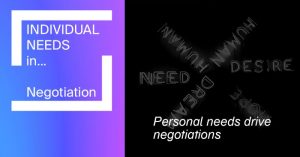A recent discussion with an HR manager of a global engineering firm went something like this:
“I’ve got a team of 80 engineers working on this project. Many are fresh out of elite universities and super intelligent. Give any of them a spreadsheet and see them go. Yet give them a bad mouthed subby (subcontractor) who is stuck in his ways and the fights are on! I can’t get these people to sort things out. Problems escalate, tempers flare and then we’re back to square one with the end result the project roll out held-up. It’s VERY frustrating!”.
‘Soft skills’ is a term I struggle with, because the learning it refers to (communication, negotiation skills amongst others) are often quite hard for our clients to understand they lack and need. Having an extraordinary level of technical competence does not automatically engender you with extraordinary communication, negotiation and inter-personal skills. Of concern is that within some internal work cultures ‘soft skills’ are regarded as a ‘nice to have’ not a ‘need to have’.
It’s not that uncommon for our Negotiation and Influencing practitioners to begin working with a company team to find some initial resistance. Course participants may enter the training room with a slightly irritated air, sit down with arms firmly crossed and an expression which communicates “…I’d rather be on the tools doing my job than in here when I’ve got so much on! ”.
The notion of soft skills being regarded as distinct from what “ I do” is very much a starting point for new learning. Game on! The way you resolve conflict, communicate with others, influence people in your team, those overseeing your team and outside your company, have a very direct consequence on what you ‘do’.
The discovery that the ‘process’ of how you communicate, how you negotiate is even more influential on the outcome of what someone ‘does’ is sometimes an awakening that has a revelatory impact. I’ve observed radical changes within the demeanour of our initially reluctant learner’s expression once they understand the distinction between content (their knowledge expertise, what they ostensibly ‘do’) and process (the way they manage their negotiations with others, the way they do what they “do”). Suddenly the bored, slightly defensive specialist is enlightened, all metaphoric learning light bulbs ablaze. It’s a very exciting change to see.
The elevation of ‘hard’ skills over ‘soft’ is somewhat understandable when you consider how much time we spend pursuing their attainment throughout years of formal education. Soft skills are relegated to th ‘university of life’ arena. And that’s undoubtedly why most of us are fairly ill-prepared for the complexity of real work life.
So do ‘soft skills’ just help us hold our own in the staff room? Not at all. Research reported by Dr Leigh Thompson, from the Kellogg School of Management Northwestern University reveals that an astounding 80% of senior executives leave money on the table when negotiating business transactions! Having a strong suite (or lack of) of soft skill capacity has massive commercial ramifications.
A lot of our recent professional momentum comes from working within organisations with hundreds of employees managing massive teams, dealing with complex stakeholder relationships and nutting out complex technical multi-party agreements. ‘Hard skills’ – technical competence – are clearly not enough when the rubber hits the road. Without the ‘soft skill’ underpinning you’ll be running on reduced capacity, throwing money around carelessly and letting those ‘subbies’ have the last laugh.



